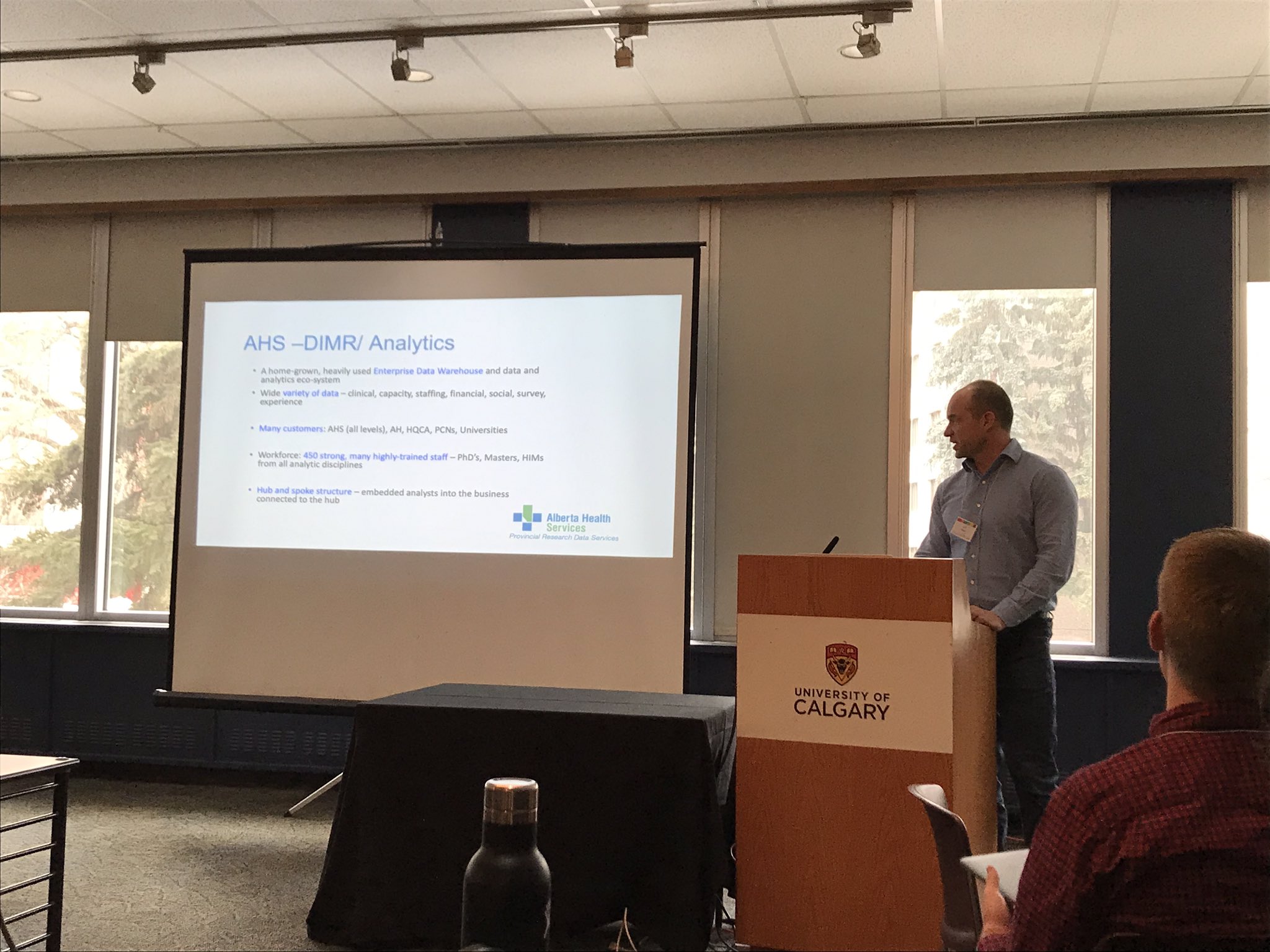Main Menu

Alberta has “flattened” the COVID-19 curve, carefully managing the impact of the pandemic on Alberta’s health system by using real-time data and evidence to inform decisions. The Alberta SPOR SUPPORT Unit (AbSPORU) is working with the Alberta Health Services (AHS) Emergency Coordination Centre (ECC) to undertake outbreak modelling, case reporting, and capacity planning, all being used to help coordinate health service operations and optimal patient care options. Jeff Bakal, Program Director, Provincial Research Data Services, discusses how the support provided by the AbSPORU Data Platform has helped the province manage its impressive response to the COVID-19 pandemic.
The AbSPORU Data Platform has developed and evaluated models to help AHS ECC understand the risk to patients that the COVID-19 pandemic represents, and how best to transition those patients affected through the Emergency Department, Intensive Care Units (ICUs) and in-patient settings. The AbSPORU Data Platform has also developed early stage decision support tools to inform AHS’ admission process for patients testing positive for COVID-19 as well as ICU management optimization using Alberta data.
The AbSPORU Data Platform was able to rapidly respond to the health system’s needs with near real-time solutions by leveraging the Platform’s existing data assets, analytic expertise and digital systems. Patients are quickly enrolled in cutting edge clinical trials and studies on treatment and understanding of the disease.
Our AbSPORU research data scientists were able to quickly learn and adapt to the new and near real-time data sources that were brought online as part of the pandemic response (e.g., COVID-19 test results). Further, they were able to evaluate models and methods from other provinces jurisdictions to understand what was learned and could be applied to the Alberta population context.
We’ve learned that Alberta’s provincial and social response led to differences in the progression of the disease and effects on the health delivery system compared to other areas (results soon to be published). We learned that there is an engaged health service and research community ready to partner with us to develop a response. The outcomes and understanding of the disease will require years of work which all partners are invested in pursuing.
The decision support tools will assist in the responsiveness and planning of health system operations, enabling health practitioners and administrators to effectively monitor the pandemic situation and adjust as needed using real time data. It is anticipated the tools will also be of value to those undertaking COVID-19 related clinical trials and research studies that will generate the evidence to help us and others understand the health and social impacts of COVID-19.
By being embedded in the health system, the AbSPORU Data Platform team is optimally situated – the structure enables the Platform to have full access to real-time data, as well as connections to key stakeholders in AHS, including the Strategic Clinical Networks (SCNs). It’s these end-users that use the data generated from health research and health care delivery to identity changes that may be required to improve patient care and or health system performance
We expect that research resulting from the AHS ECC collaboration will continue for years as we develop our understanding of the longer-term outcomes. Currently we are undertaking some work to look at optimizing rehabilitation strategies for patients who require assistance after recovery from the COVID-19 infection.
Given the current situation and Alberta’s phased approached to relaunching the economy after COVID-19, the ECC continues to operate and remains in a state of watchful waiting should there be a need to respond to a change and or a second wave of the pandemic.
We are leveraging this work to assist with other COVID-19 research projects with partners at the Health Data Research Network Canada (HRDN) component of the SPOR Canadian Data Platform (CDP). Some examples can be found here.

Let us know how you want to stay connected


 News + Events
News + Events

 Patient Partner Research Opportunities
Patient Partner Research Opportunities

 I agree to receive occasional emails from AbSPORU.
I agree to receive occasional emails from AbSPORU.University of Calgary Foothills Campus
3330 Hospital Dr NW
Calgary, AB T2N 4N1
University of Alberta North Campus
Edmonton Clinic Health Academy (ECHA)
11405 87 Ave NW
Edmonton, AB T6G 1C9
The Alberta SPOR SUPPORT Unit operates on and acknowledges the lands that are the traditional and ancestral territory of many peoples, presently subject to Treaties 6, 7, and 8. Namely: the Blackfoot Confederacy – Kainai, Piikani, and Siksika – the Cree, Dene, Saulteaux, Nakota Sioux, Stoney Nakoda, and the Tsuu T’ina Nation and the Métis People of Alberta. This includes the Métis Settlements and the Métis Nation of Alberta. We acknowledge the many First Nations, Métis and Inuit who have lived in and cared for these lands for generations. We make this acknowledgment as a reaffirmation of our shared commitment towards reconciliation, and as part of AbSPORU’s mandate towards fostering health system transformation.
© 2025 AbSPORU